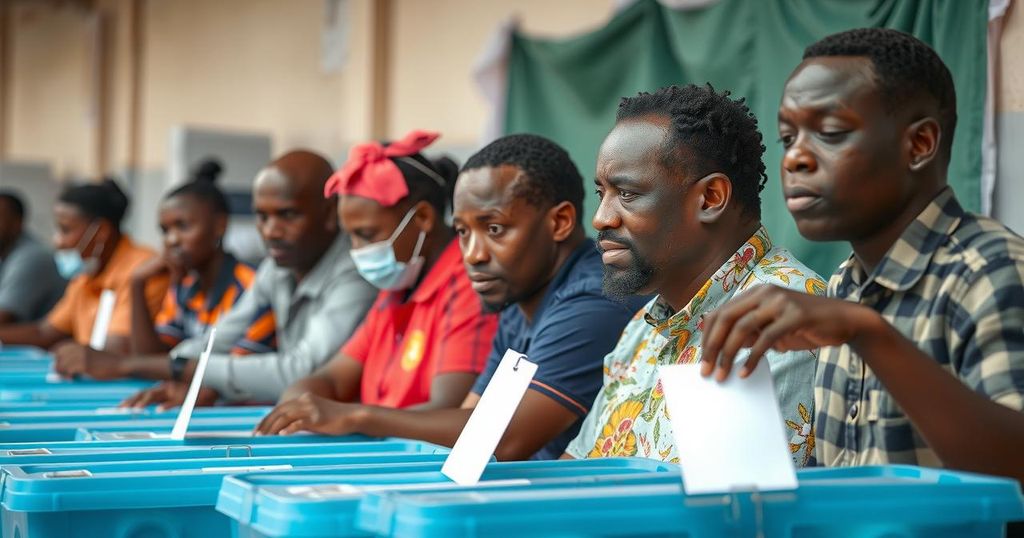On December 7, 2024, Ghanaians participated in presidential and parliamentary elections amid a severe economic crisis characterized by high inflation and job losses. The elections primarily featured Vice President Mahamudu Bawumia (NPP) and former President John Dramani Mahama (NDC). Approximately 82% of voters believe the country is headed in the wrong direction, underscoring the critical nature of this election for future governance and policy. With 276 parliamentary seats also up for grabs, the results of this election could significantly impact the country’s recovery efforts.
Ghanaians cast their votes in presidential and parliamentary elections deemed critical for democracy amid a severe economic crisis. With polling stations opening at 7 a.m. GMT on December 7, 2024, approximately 18.7 million registered voters face a vote between Vice President Mahamudu Bawumia of the ruling New Patriotic Party (NPP) and former President John Dramani Mahama of the National Democratic Congress (NDC) in a race projected to have Mahama leading. This election occurs against a backdrop of rampant inflation and job scarcity, with nearly 82% of voters feeling the country is on the wrong path. Despite the NPP and NDC traditionally maintaining distinct political identities, the candidates’ proposed solutions appear largely similar, highlighting the challenges ahead. Alongside the presidential election, all 276 parliamentary seats are contested as both parties vie for legislative control. The current standing of Ghana as a beacon of democracy is at stake, particularly as the nation grapples with its worst economic struggles in decades and the dual threat of illegal gold mining and inflation that has compromised many citizens’ livelihoods.
The significance of the December 7, 2024, elections in Ghana cannot be understated, as they emerge during one of the country’s most tumultuous economic periods in recent history. Ghana, previously lauded for its democratic stability amidst regional turmoil, now faces considerable challenges including soaring inflation rates, a devalued currency, and dwindling job prospects. The populace is increasingly frustrated with the status quo, providing context for the high stakes surrounding these elections. With an expansive voter base, the outcome may influence not just national policy but also Ghana’s regional diplomatic position. Additionally, the ongoing issues surrounding illegal mining activities further complicate the political landscape, affecting both governance and environmental sustainability.
In summary, the general elections in Ghana symbolize a critical juncture for the nation as it combats severe economic difficulties and seeks to maintain its democratic integrity. With a significant portion of the electorate dissatisfied with the current trajectory of their country, both presidential candidates must address the pressing concerns of their constituents. The outcome of this election could reshape Ghana’s political landscape and economic future in a time when leadership is essential to overcoming deep-rooted challenges.
Original Source: apnews.com






